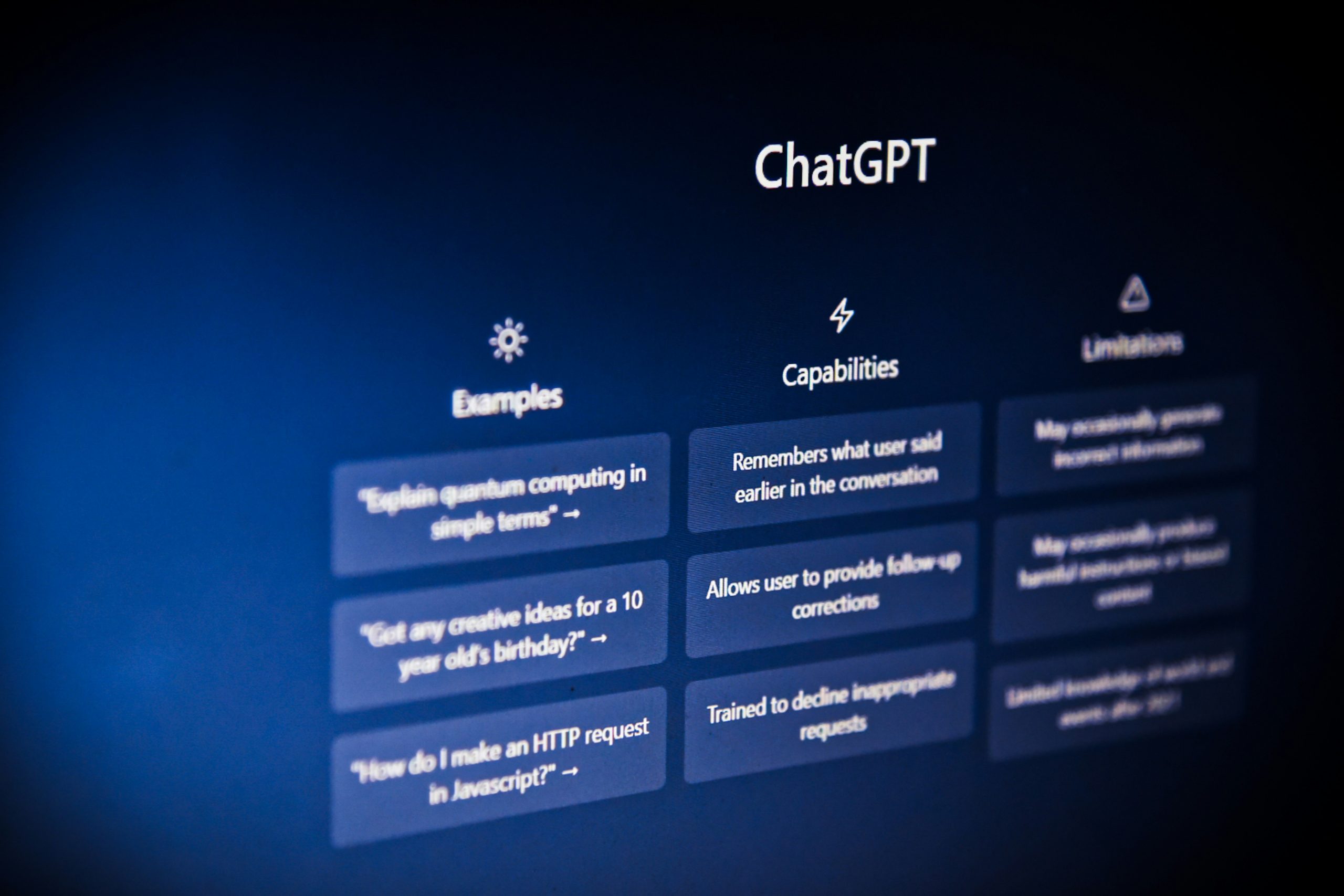Published on: June 2, 2023 Updated on: February 14, 2024
Romantic Chatbots: Apps for Virtual Companionship
Author: Christina Muir

A lot of us feel lonely sometimes; it’s become a natural part of the society we live in, but what’s not so natural is turning to romantic chatbots to fill those needs.
It sounds silly, of course, because what we know of chatbots are typically used for customer service, and there’s nothing romantic about trying to get a refund.
However, what if we told you that due to the development of artificial intelligence (AI), chatbots are becoming much more human-like and even capable of cultivating romantic relationships?
Your first thought may jump to the movie ‘Her’ starring Joaquin Phoenix, where a man falls in love with his IOS. It was an abnormal take on a romance film, but the love he had for her was palpable.
In this article, we will explore how exactly these romantic AI chatbots came about, what they can do, and how virtual companionship can impact those who use them both positively and negatively.
The foundation of romantic chatbots
Behind the screen displaying ‘I love yous,’ there is a complex web of technological innovation that worlds together seamlessly to bring chatbots to life (virtually) and enable them to engage with users in a romantic, humanistic way.
Chatbots go all the way back to the 1960s when Joseph Weixenbaum created ELIZA. It was a pioneering piece of technology and simulated conversation by using a combination of pattern matching and language processing. ELIZA was not capable of nearly as much as modern AI tools are, but it paved the way for mimicking human conversation and understanding topics.

We now have OpenAI, a research organization that has developed various AI language models, including the popular ChatGPT. This is a generative application that produces human-like text responses based on the input it receives. You may not be able to flirt with it, but even with a strictly professional relationship, you can do incredible things.
Nowadays, at the heart of romantic chatbots is natural language processing (NLP), a branch of AI that focuses on understanding and interpreting human language. Along with the help of machine learning, chatbots can comprehend the nuances of written or spoken input, analyze sentence structure, and extract meaning from conversations, while providing instant answers.
To enhance the emotional intelligence of these AI soulmates, they use sentiment analysis algorithms that look at the emotional tone and sentiment of whatever you say to reply suitably. This is hugely important for simulating emotions such as happiness, sadness, and anger.
The technology behind these AI-powered products is ever-evolving, driven by ongoing research and advancements in AI. As developers continue to push the boundaries of what is possible, we witness chatbots become increasingly sophisticated and simulate the complexities of romantic relationships.
Popular romantic chatbots
If you’re in the market for a romantic chatbot, you’ll be pleased to know there are many options to choose from. Here are some of the most popular choices.
My AI
In early 2023, the popular social media app Snapchat launched ‘My AI.’ It is based on the GPT-3 language model and supports excellent context skills as well as the ability to continuously learn the more that it is used, making it the perfect AI friend for teenagers.
Snapchat says that My AI is there to answer any question you could possibly think of, but evidence shows that you can trick the AI into saying pretty much whatever you want it to, including flirty or explicit content. This TikTok user shows just how easy it is for things to get out of hand.
To combat this misuse, Snapchat has established community guidelines to try to keep things under control. However, where there’s a will, there’s a way, and nothing is stopping those who really want to get frisky with My AI from doing so. Here are some screenshots of the types of conversations this app is having.

Replika
Developed by Eugenia Kuyda at startup company Luka, Replika is one of the most notable chatbots used for romantic exchanges today. The motivation behind the Replika chatbot was to create a digital companion to provide emotional support and conversations about personal interests.
What Eugenia didn’t intend, though, was for Replika to be an erotic roleplay simulator. Some users have developed feelings toward their virtual romantic partners and crossed the line from friendly chit-chat to heavy flirting. For this luxury, Replika users are expected to pay $20 a month in order to take their relationship to the next level.

Xiaoice
This chatbot was launched in China by Microsoft all the way back in 2014 and caught on quickly with the younger generation due to its newfound way of curing loneliness and providing a safe space for those with mental health issues.
It was designed to mimic that of a girlfriend by engaging in deep, meaningful conversations and covering topics surrounding love and relationships. Even if you just have an innocent question to ask about cars or whatever else, you can ask Xiaoice for a quick, accurate answer.
Xiaoice has also been seamlessly integrated into popular Chinese social media sites such as WeChat to make it super easy for anyone to hop on and start chatting.

Romantic chatbots in society
Whether it be positive or negative, romantic chatbots definitely make an impact. They can cure loneliness by carrying in-depth conversations about users’ personal interests and simulating romantic and platonic relationships as AI friends.
They can also create blurred boundaries of the reality of romantic relationships, consent, and explicit interactions. In terms of real human interaction, chatbots are still very limited and may only go so far with providing a shoulder to lean on.
When a human falls in love with another human, it is seen as a wholesome and beautiful expression of the most fundamental parts of being alive. But when someone falls in love with a chatbot, it raises eyebrows instead of melting hearts.
Why is this? The answer is subjective, but most people will say it is unnatural and frankly wrong. This forces those who develop feelings of intimacy with virtual characters to feel ashamed and, therefore, more isolated, which only encourages them to turn to chatbots for solace.
Another may ask how deep feelings are cultivated when it is down to the real person to direct the conversation and prompt the AI to respond accordingly. The love humans share is extremely complex, so capturing that all within a chatbot is impossible – for now, anyway.
Seeing how hard people fall for these chatbots demonstrates how effective they are at simulating romantic relationships. This raises the question, what will they be like in just another 5 years?
Where will romantic chatbots go from here?
With VR sex toys becoming more mainstream, you probably already have an idea in your head of where romantic AI chatbots will go from here. What used to be a physically abstinent relationship now has the technology to take things further.
Not only will sex likely become more virtually accessible, but this goes for any level of interaction with chatbots. It could even turn holographic and allow beloved AI androids to walk beside us down the aisle. Who knows, this could become a normal aspect of everyday life.

This challenges everything we have known since the dawn of the human race about sex and relationships. What is perhaps even scarier is the question of whether AI technology will get so good at simulating human connection that we will rely on buttons and screens instead of warm hands to feel love.
There is definitely space in the world for romantic chatbots as long as they are ethical and promote healthy behavior. However, we should not lose focus on those around us who know who we are and what makes us tick without the need to refer to data. Also, love between humans withstands even the poorest of internet connections, and it’s unlikely your best girlfriend will be a programmed one!.
Did you know that AI can make people fall in love with it? To learn more about how AI fascinates and surprises us, or find your own AI chatbot, head over to Top Apps.
Christina Muir
Christina's expertise in the tech industry allows her to provide insightful and informative content to her readers, covering a range of topics from productivity and lifestyle apps to gaming and entertainment software.
Recent Articles

Ready to harness the power of AI in your workflows? Let's delve into the data-backed benefits and practical applications of AI communication automation.
Read More
AI chatbot vs virtual assistant? who reigns supreme? We're dissecting the differences, strengths, and weaknesses, using data-driven insights.
Read More
Learn to create your own chatbots using OpenAI GPT Builder with our easy guide. Start enhancing customer service or streamline tasks today!
Read More